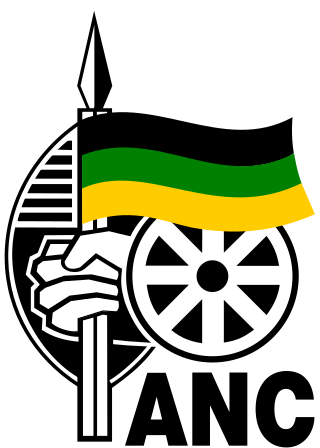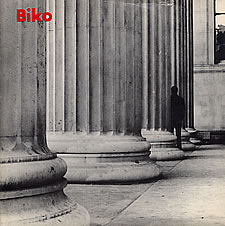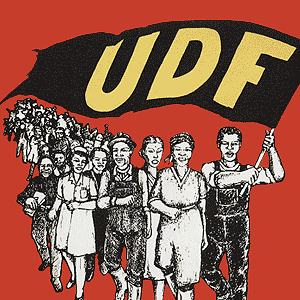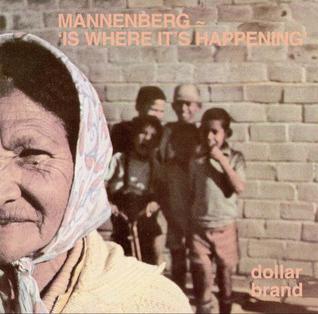Related Research Articles

The African National Congress (ANC) is a social-democratic political party in South Africa. A liberation movement known for its opposition to apartheid, it has governed the country since 1994, when the first post-apartheid election installed Nelson Mandela as President of South Africa. Cyril Ramaphosa, the incumbent national President, has served as President of the ANC since 18 December 2017.

The South African Communist Party (SACP) is a communist party in South Africa. It was founded in 1921 as the Communist Party of South Africa (CPSA), tactically dissolved itself in 1950 in the face of being declared illegal by the governing National Party under the Suppression of Communism Act, 1950. The Communist Party was reconstituted underground and re-launched as the SACP in 1953, participating in the struggle to end the apartheid system. It is a member of the ruling Tripartite Alliance alongside the African National Congress and the Congress of South African Trade Unions (COSATU) and through this it influences the South African government. The party's Central Committee is the party's highest decision-making structure.

Jonathan Paul Clegg, was a South African musician, singer-songwriter, dancer, anthropologist and anti-apartheid activist.

Abdullah Ibrahim is a South African pianist and composer. His music reflects many of the musical influences of his childhood in the multicultural port areas of Cape Town, ranging from traditional African songs to the gospel of the AME Church and Ragas, to more modern jazz and other Western styles. Ibrahim is considered the leading figure in the subgenre of Cape jazz. Within jazz, his music particularly reflects the influence of Thelonious Monk and Duke Ellington. He is known especially for "Mannenberg", a jazz piece that became a notable anti-apartheid anthem.

Zenzile Miriam Makeba, nicknamed Mama Africa, was a South African singer, songwriter, actress, and civil rights activist. Associated with musical genres including Afropop, jazz, and world music, she was an advocate against apartheid and white-minority government in South Africa.
Anarchism in South Africa dates to the 1880s, and played a major role in the labour and socialist movements from the turn of the twentieth century through to the 1920s. The early South African anarchist movement was strongly syndicalist. The ascendance of Marxism–Leninism following the Russian Revolution, along with state repression, resulted in most of the movement going over to the Comintern line, with the remainder consigned to irrelevance. There were slight traces of anarchist or revolutionary syndicalist influence in some of the independent left-wing groups which resisted the apartheid government from the 1970s onward, but anarchism and revolutionary syndicalism as a distinct movement only began re-emerging in South Africa in the early 1990s. It remains a minority current in South African politics.

Apartheid was a system of institutionalised racial segregation that existed in South Africa and South West Africa from 1948 to the early 1990s. Apartheid was characterised by an authoritarian political culture based on baasskap, which ensured that South Africa was dominated politically, socially, and economically through minoritarianism by the nation's dominant minority white population. According to this system of social stratification, white citizens had the highest status, followed by Indians and Coloureds, then Black Africans. The economic legacy and social effects of apartheid continue to the present day, particularly inequality.
The Black Consciousness Movement (BCM) was a grassroots anti-Apartheid activist movement that emerged in South Africa in the mid-1960s out of the political vacuum created by the jailing and banning of the African National Congress and Pan Africanist Congress leadership after the Sharpeville Massacre in 1960. The BCM represented a social movement for political consciousness.
[Black Consciousness'] origins were deeply rooted in Christianity. In 1966, the Anglican Church under the incumbent, Archbishop Robert Selby Taylor, convened a meeting which later on led to the foundation of the University Christian Movement (UCM). This was to become the vehicle for Black Consciousness.

"Biko" is an anti-apartheid protest song by English rock musician Peter Gabriel. It was released by Charisma Records as a single from Gabriel's eponymous third album in 1980.

The United Democratic Front (UDF) was a South African popular front that existed from 1983 to 1991. The UDF comprised more than 400 public organizations including trade unions, students' unions, women's and parachurch organizations. The UDF's goal was to establish a "non-racial, united South Africa in which segregation is abolished and in which society is freed from institutional and systematic racism." Its slogan was "UDF Unites, Apartheid Divides." The Front was established in 1983 to oppose the introduction of the Tricameral Parliament by the white-dominated National Party government, and dissolved in 1991 during the early stages of the transition to democracy.
Juluka was a South African band formed by Johnny Clegg and Sipho Mchunu. Juluka means "sweat" in Zulu, and was the name of a bull owned by Mchunu. The band was closely associated with the mass movement against apartheid.

Internal resistance to apartheid in South Africa originated from several independent sectors of South African society and took forms ranging from social movements and passive resistance to guerrilla warfare. Mass action against the ruling National Party (NP) government, coupled with South Africa's growing international isolation and economic sanctions, were instrumental in leading to negotiations to end apartheid, which began formally in 1990 and ended with South Africa's first multiracial elections under a universal franchise in 1994.
Roger Lucey is a South African musician, journalist, filmmaker, actor, and educator. In the late 1970s and early 1980s his early career as a musician was destroyed by Paul Erasmus of the Security Branch of the South African Police, because the lyrics to Lucey's protest songs were considered a threat to the Apartheid State. Although already aware of his anti-apartheid songs, the South African Government's security apparatus only swung into action to destroy Lucey's career after he performed a radical song in a programme on Voice of America radio. The criminal methods used against Lucey formed part of the testimony given by Paul Erasmus in front of the South African Truth and Reconciliation Commission.

The African National Congress (ANC) has been the governing party of the Republic of South Africa since 1994. The ANC was founded on 8 January 1912 in Bloemfontein and is the oldest liberation movement in Africa.
"Senzeni Na?" is a South African anti‐apartheid folk song. It is a Xhosa struggle song, and is commonly sung at funerals, demonstrations and in churches. Activist Duma Ndlovu compared the influence of "Senzeni Na?" to that of the American protest song, "We Shall Overcome."

"Mannenberg" is a Cape jazz song by South African musician Abdullah Ibrahim, first recorded in 1974. Driven into exile by the apartheid government, Ibrahim had been living in Europe and the United States during the 1960s and '70s, making brief visits to South Africa to record music. After a successful 1974 collaboration with producer Rashid Vally and a band that included Basil Coetzee and Robbie Jansen, Ibrahim began to record another album with these three collaborators and a backing band assembled by Coetzee. The song was recorded during a session of improvisation, and includes a saxophone solo by Coetzee, which led to him receiving the sobriquet "Manenberg".

The apartheid regime in South Africa began in 1948 and lasted until 1994. It involved a system of institutionalized racial segregation and white supremacy, and placed all political power in the hands of a white minority. Opposition to apartheid manifested in a variety of ways, including boycotts, non-violent protests, and armed resistance. Music played a large role in the movement against apartheid within South Africa, as well as in international opposition to apartheid. The impacts of songs opposing apartheid included raising awareness, generating support for the movement against apartheid, building unity within this movement, and "presenting an alternative vision of culture in a future democratic South Africa."
"Meadowlands" was an anti-apartheid song composed in 1956 by Strike Vilakazi. It was written in reaction to the forced relocation of black South Africans from Sophiatown, to the new township of Meadowlands. The song was popularised by a number of musicians, including Dorothy Masuka and Miriam Makeba, and became an anthem of the movement against apartheid.
Strike David Vilakazi was a South African vocalist, drummer, trumpeter, composer, and music producer. He was known for composing the anti-apartheid song "Meadowlands", and for his career as a producer, during which he was influential in the development of mbaqanga.
Music and Black liberation refers to music associated with Black political movements for emancipation, civil rights, or self-determination. The connection between music and politics has been used in many cultures and was utilized by blacks in their struggle for freedom and civil rights. Music has been used by African Americans over the course of United States history to express feelings of struggle and hope, as well as to foster a sense of solidarity to aid their fight for liberation and justice. African Americans have used music as a way to express their struggle for freedom and equality which has spanned the history of the United States which has resulted in the creation and popularization of many music genres including, jazz, funk, disco, rap, and hip hop. Many of these songs and artists played pivotal roles in generating support for the civil rights movement.
References
- 1 2 3 Hall, Patricia, ed. (2018). "Censorship from Apartheid to Post-Apartheid South Africa". The Oxford Handbook of Music Censorship. Oxford University Press. p. 597. ISBN 978-0-19-973316-3 . Retrieved 26 November 2017.
- ↑ Ansell, Gwen, ed. (2005). "Jazz for the Struggle, and the Struggle for Jazz". Soweto Blues: Jazz, Popular Music, and Politics in South Africa. A&C Black. p. 190. ISBN 978-0-8264-1753-4 . Retrieved 26 November 2017.
- ↑ Martin, Denis-Constant (2013). "Two Decades of Freedom". Sounding the Cape: Music, Identity and Politics in South Africa. African Minds. p. 269. ISBN 978-1-920489-82-3. OCLC 855547885 . Retrieved 26 November 2017.
- ↑ Garofalo, Reebee (1992). Rockin' the Boat: Mass Music and Mass Movements . South End Press. p. 196.